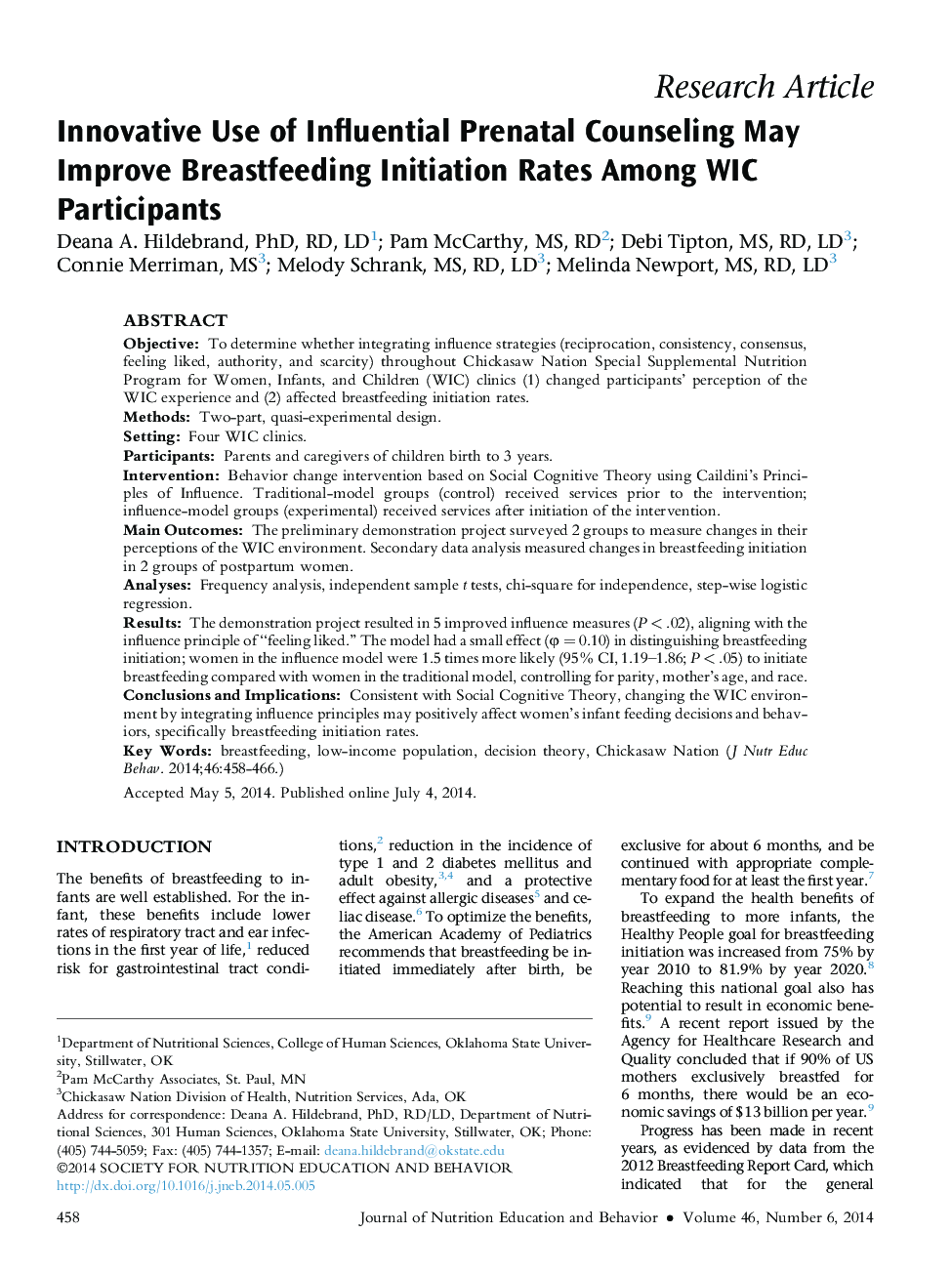| Article ID | Journal | Published Year | Pages | File Type |
|---|---|---|---|---|
| 361164 | Journal of Nutrition Education and Behavior | 2014 | 9 Pages |
ObjectiveTo determine whether integrating influence strategies (reciprocation, consistency, consensus, feeling liked, authority, and scarcity) throughout Chickasaw Nation Special Supplemental Nutrition Program for Women, Infants, and Children (WIC) clinics (1) changed participants' perception of the WIC experience and (2) affected breastfeeding initiation rates.MethodsTwo-part, quasi-experimental design.SettingFour WIC clinics.ParticipantsParents and caregivers of children birth to 3 years.InterventionBehavior change intervention based on Social Cognitive Theory using Caildini's Principles of Influence. Traditional-model groups (control) received services prior to the intervention; influence-model groups (experimental) received services after initiation of the intervention.Main OutcomesThe preliminary demonstration project surveyed 2 groups to measure changes in their perceptions of the WIC environment. Secondary data analysis measured changes in breastfeeding initiation in 2 groups of postpartum women.AnalysesFrequency analysis, independent sample t tests, chi-square for independence, step-wise logistic regression.ResultsThe demonstration project resulted in 5 improved influence measures (P < .02), aligning with the influence principle of “feeling liked.” The model had a small effect (φ = 0.10) in distinguishing breastfeeding initiation; women in the influence model were 1.5 times more likely (95% CI, 1.19–1.86; P < .05) to initiate breastfeeding compared with women in the traditional model, controlling for parity, mother's age, and race.Conclusions and ImplicationsConsistent with Social Cognitive Theory, changing the WIC environment by integrating influence principles may positively affect women's infant feeding decisions and behaviors, specifically breastfeeding initiation rates.
